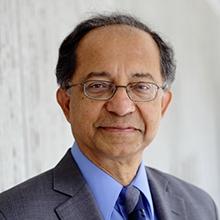You are here
When voters become fans
Apr 05,2023 - Last updated at Apr 05,2023
ITHACA — The state of global politics has economists, political scientists and political philosophers floundering. We are witnessing a level of polarisation rarely seen. From Turkey, Brazil, and the Philippines to Sri Lanka, India, and the United States, the center has not held, because people have either veered left or clustered around figures on the far right.
In authoritarian countries, one usually cannot see authentic public expression of political demands. Yet the politics are still there, and they can become apparent during periods of severe strain, as is happening with the widespread backlash in China against the government’s zero-COVID policy. Such moments suggest that the opposition is much larger than it may have seemed.
In any case, political polarisation tends to nurture authoritarianism and empower self-aggrandizing demagogues who are skilled at rallying their followers behind hyper-nationalist causes. We have seen this dynamic play out to tragic effect with Russian President Vladimir Putin’s war of aggression in Ukraine, and with the crackdown on minorities in Myanmar by the military junta.
All this poses a challenge to global stability, and calls for corrective policy interventions that straddle law, economics and politics. However, it is not clear what those interventions should look like. We first must step back to consider what is underpinning the polarisation in the first place.
One interesting hint comes from the FIFA World Cup in Qatar. Mainstream economics tells us that people’s goals and ambitions are “exogenously” given, meaning they are hardwired into us. We want more and better food, clothes, cars, electronic gadgets and so on. And since getting them requires money, people naturally strive to earn more and build up greater wealth. Yet what is not recognised — even though prominent past thinkers from Thorstein Veblen to Tibor Scitovsky were acutely aware of it — is that many of our ambitions are endogenously created. Rather than being born with them, we acquire and cultivate them along the way.
Sports offer a perfect example of this. Though professional footballers get monetary rewards when they succeed, they would still try to win as many matches as possible even without that incentive. Scoring a goal is the ultimate aim. Even if one believes that the prospect of more money does drive some athletes to push themselves to the limit, what about the fans who travel great distances and commit inordinate amounts of time and money to the game? The desire to see “their team” win is an end in itself, a created target.
The lengths to which fans will go was evident recently in India, when a fight broke out between supporters of Brazil and Argentina. These were ordinary Indians with no connection to either country. Yet, there they were, ready to scrap and risk their safety for an acquired cause. If nothing else, a soccer brawl is another exhibition of polarisation.
Today’s political polarisation calls into question longstanding assumptions about how electoral politics works. Consider the American mathematician Harold Hotelling’s seminal 1929 paper, which deeply influenced our understanding of electoral democracy and led to the influential “median voter theorem” (absorbed into political science by Duncan Black and Anthony Downs). According to Hotelling and the theorists he inspired, if you assume that people have exogenously given political preferences — spanning from extreme left to extreme right — it is easy to see how two political parties might manoeuvre to get the most votes. The right-wing party will move leftward on some issues, knowing that right-wing voters will still support it; and the left-wing party will do the same from the other direction.
In theory, then, the equilibrium will feature a clustering around the middle, where one finds half the voters from the left and half of those from the right — the very definition of the median. Hence, electoral democracy supposedly leads political parties to appease the median voter, a tendency that affords the country a great deal of political stability, even if it also makes politics dull.
But political trends in recent years indicate that voters’ ideological preferences are not necessarily exogenous, but rather created and fostered over time. After a voter decides to support Democrats or Republicans, that voter’s partisan commitment will gradually acquire the character of sports fandom. Republican voters want Republicans to win, and Democrats want Democrats to win, not because they are expecting some fundamental change in their lives, but because they want to beat the other side. Scoring goals is an end in itself.
Acknowledging this endogeneity of preferences could open up new avenues for analysing politics and polarisation. Among other things, it implies that political parties do not just try to garner the support of voters with pre-existing preferences. Rather, they strategise to create those preferences. As we have seen, this can lead to vile forms of political competition, especially in an age of social-media filter bubbles that segregate news consumers and are designed to exploit their biases.
Escaping this trap will probably require novel forms of regulation. But since the most promising solutions are not yet evident, we had better start thinking creatively about what it will take to protect democratic institutions and the social fabric in an age when preferences have never been easier to manipulate.
Kaushik Basu, a former chief economist of the World Bank and chief economic adviser to the Government of India, is professor of Economics at Cornell University and a non-resident senior fellow at the Brookings Institution. Copyright: Project Syndicate, 2022.













